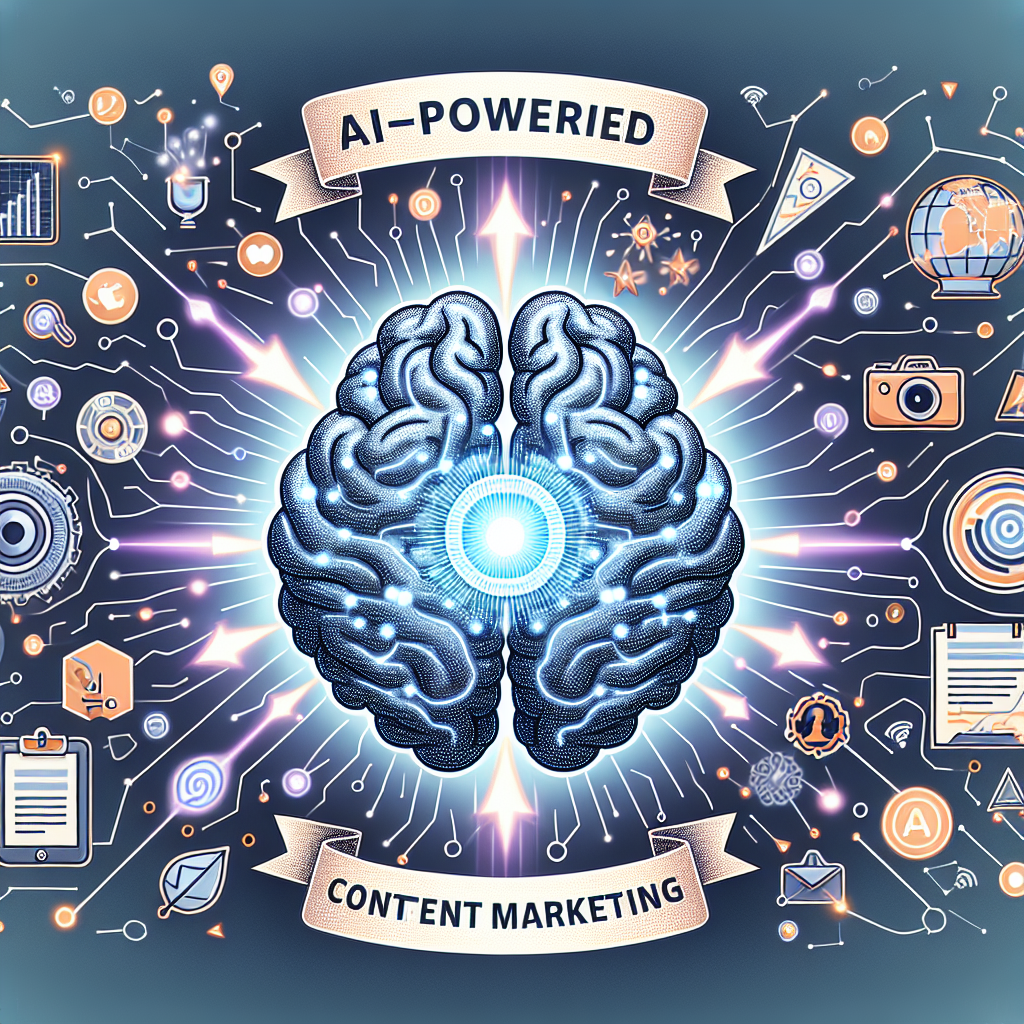Metadata Center Investment Driving AI Leadership and Workforce Transformation – A $600 billion investment in the metadata center by 2028 is transforming AI leadership, workforce training, and digital transformation strategies.
In recent years, the rise of metadata center investment has become a key focus for organizations seeking to enhance their digital capabilities. As businesses increasingly rely on data-driven decision-making, the need for robust infrastructure to manage and analyze vast amounts of information has surged. Metadata centers serve as the backbone of this digital transformation, providing the necessary resources to store, process, and retrieve data efficiently.
This investment trend is not merely a response to current demands; it is a proactive strategy to future-proof organizations against the rapidly evolving technological landscape. The growth in metadata center investment is also fueled by the increasing adoption of cloud computing and artificial intelligence (AI). Companies are recognizing that traditional data management systems are no longer sufficient to handle the complexities of modern data environments.
As a result, organizations are channeling significant resources into building and upgrading their metadata centers. According to a recent report, global spending on metadata centers is projected to reach $200 billion by 2025, highlighting the urgency for businesses to invest in this critical infrastructure. Visit iAvva Store
Key Takeaways
- Investment in metadata centers is on the rise, indicating a growing recognition of the importance of data management and organization.
- AI leadership is being significantly impacted by the increasing investment in metadata centers, as it enables better data utilization and decision-making.
- Workforce training and development are crucial for effectively leveraging investments in metadata centers and AI leadership.
- Digital transformation strategies are being shaped by the growing role of metadata center investment in driving data-driven decision-making.
- AI is playing a key role in driving investment in metadata centers, as organizations seek to harness the power of data for competitive advantage.
Impact on AI Leadership
The investment in metadata centers has profound implications for AI leadership within organizations. As metadata centers become more sophisticated, they enable AI leaders to harness the power of data more effectively. With enhanced data storage and processing capabilities, AI leaders can develop more accurate models and algorithms, leading to better insights and decision-making.
This shift empowers organizations to leverage AI not just as a tool but as a strategic asset that drives innovation and competitive advantage. Moreover, the integration of advanced analytics within metadata centers allows AI leaders to experiment with new technologies and methodologies. This experimentation fosters a culture of innovation, where teams are encouraged to explore novel solutions to complex problems.
As AI leadership evolves, it becomes essential for leaders to cultivate an environment that embraces change and encourages continuous learning. By investing in metadata centers, organizations are not only enhancing their technological capabilities but also positioning themselves as leaders in the AI landscape.
Workforce Training and Development

As organizations invest in metadata centers and AI technologies, workforce training and development become paramount. The rapid pace of technological advancement necessitates that employees are equipped with the skills needed to navigate this new landscape. Companies must prioritize training programs that focus on data literacy, AI fundamentals, and advanced analytics.
By doing so, they empower their workforce to leverage the capabilities of metadata centers effectively. Furthermore, organizations should adopt a continuous learning approach to workforce development. This involves creating opportunities for employees to engage in ongoing training and professional development.
For instance, companies can implement mentorship programs where experienced employees guide their peers in understanding complex data systems and AI applications. By fostering a culture of learning, organizations can ensure that their workforce remains agile and adaptable in the face of technological change.
Digital Transformation Strategies
| Strategy | Metrics |
|---|---|
| Cloud Adoption | Percentage of workloads in the cloud |
| Data Analytics | Number of data-driven decisions made |
| Customer Experience | Net Promoter Score (NPS) |
| Agile Development | Time to market for new products/features |
| Security Enhancement | Number of security incidents |
Digital transformation strategies are essential for organizations looking to thrive in an increasingly competitive environment. The rise of metadata center investment plays a crucial role in shaping these strategies. Organizations must align their digital transformation initiatives with their metadata capabilities to maximize the benefits of their investments.
To effectively implement digital transformation strategies, organizations should adopt a holistic approach that encompasses technology, people, and processes. This involves not only investing in advanced metadata centers but also fostering a culture that embraces digital innovation.
By encouraging collaboration between IT and business units, organizations can create synergies that drive successful digital transformation efforts. Ultimately, a well-executed digital transformation strategy can lead to improved operational efficiency, enhanced customer experiences, and increased revenue growth.
The Role of AI in Driving Investment
AI plays a pivotal role in driving investment in metadata centers. As organizations recognize the potential of AI to unlock new opportunities, they are more inclined to invest in the infrastructure needed to support these technologies. AI-driven insights can help organizations identify areas for improvement within their metadata centers, leading to more efficient operations and cost savings.
Moreover, AI can enhance the functionality of metadata centers by automating routine tasks and optimizing resource allocation. For instance, machine learning algorithms can analyze usage patterns within metadata centers to predict demand and adjust resources accordingly. This level of automation not only improves efficiency but also allows IT teams to focus on strategic initiatives rather than mundane operational tasks.
As a result, organizations that leverage AI in their metadata center investments are better positioned to achieve their business objectives.
The Future of Metadata Center Investment

The future of metadata center investment looks promising as organizations continue to prioritize data management and analytics capabilities. With the advent of emerging technologies such as edge computing and quantum computing, metadata centers will need to evolve to accommodate new demands. Organizations must stay ahead of these trends by investing in scalable infrastructure that can adapt to changing technological landscapes.
Additionally, sustainability will play an increasingly important role in metadata center investment decisions. As environmental concerns grow, organizations are seeking ways to reduce their carbon footprint while maintaining operational efficiency. This shift towards sustainable practices will drive innovation within metadata centers, leading to the development of energy-efficient technologies and practices that align with corporate social responsibility goals.
Opportunities for AI Leadership
The rise of metadata center investment presents numerous opportunities for AI leadership within organizations. As businesses invest in advanced data infrastructure, AI leaders have the chance to spearhead initiatives that leverage this technology for strategic advantage. By collaborating with cross-functional teams, AI leaders can identify use cases where AI can drive value and improve business outcomes.
Furthermore, AI leaders can play a crucial role in shaping organizational culture around data-driven decision-making. By advocating for the importance of data literacy and analytics skills, they can help create an environment where employees feel empowered to utilize data in their daily work.
Addressing Workforce Transformation
As organizations undergo digital transformation fueled by metadata center investments, addressing workforce transformation becomes essential. Employees must be equipped with the skills necessary to thrive in a data-driven environment. Organizations should conduct skills assessments to identify gaps in knowledge and develop targeted training programs that address these deficiencies.
Additionally, fostering a culture of adaptability is crucial for workforce transformation. Organizations should encourage employees to embrace change and view challenges as opportunities for growth. By promoting a growth mindset, companies can empower their workforce to navigate the complexities of digital transformation with confidence.
Leveraging Metadata Center Investment for Digital Transformation
To fully leverage metadata center investment for digital transformation, organizations must adopt a strategic approach that aligns technology with business objectives. This involves identifying key performance indicators (KPIs) that measure the success of digital initiatives and ensuring that metadata capabilities support these goals. Moreover, organizations should prioritize collaboration between IT and business units when implementing digital transformation strategies.
By fostering open communication and shared goals, companies can create synergies that drive successful outcomes. Ultimately, leveraging metadata center investment effectively can lead to enhanced operational efficiency, improved customer experiences, and increased competitiveness in the market.
Challenges and Considerations in AI Leadership
While the rise of metadata center investment offers significant opportunities for AI leadership, it also presents challenges that must be addressed. One key consideration is ensuring that AI initiatives align with ethical standards and regulatory requirements. As organizations increasingly rely on AI for decision-making, it is essential to establish guidelines that govern its use and mitigate potential biases.
Additionally, AI leaders must navigate the complexities of integrating new technologies into existing systems. This requires careful planning and collaboration with IT teams to ensure seamless implementation. By proactively addressing these challenges, AI leaders can position their organizations for success in an increasingly data-driven world.
The Global Impact of Metadata Center Investment
The global impact of metadata center investment is profound as organizations across industries recognize the importance of data management in driving innovation and growth. Countries that prioritize investments in metadata infrastructure are likely to see economic benefits as businesses become more competitive on a global scale. Furthermore, as organizations invest in sustainable practices within their metadata centers, they contribute to broader environmental goals.
This commitment to sustainability not only enhances corporate reputation but also aligns with consumer preferences for environmentally responsible practices. Ultimately, the global impact of metadata center investment extends beyond individual organizations; it shapes industries and economies as a whole. In conclusion, the rise of metadata center investment is reshaping the landscape for HR leaders, IT executives, and digital transformation champions alike.
By understanding its implications on AI leadership, workforce training, digital strategies, and global impact, organizations can position themselves for success in an increasingly data-driven world. Embracing this transformation requires a commitment to continuous learning and adaptation—an essential mindset for thriving in today’s fast-paced business environment.
Meta’s ambitious $600 billion investment in its data center by 2028 is set to revolutionize AI leadership and workforce transformation. This substantial financial commitment underscores the company’s dedication to advancing digital transformation strategies and enhancing workforce training. As businesses worldwide strive to keep pace with rapid technological advancements, understanding the broader implications of such investments becomes crucial. For insights into how digital transformation can drive business success, you might find the article Embracing Digital Transformation for Business Success particularly enlightening. This piece examines the strategic approaches companies can take to fully leverage the potential of digital innovations, aligning closely with Meta’s forward-thinking initiatives.
FAQs
What is the significance of the $600 billion investment in the metadata center by 2028?
The $600 billion investment in the metadata center by 2028 is significant as it is accelerating AI leadership, workforce training, and digital transformation strategies. This investment is expected to drive innovation and growth in the AI industry.
How is the investment in the metadata center transforming AI leadership?
The investment in the metadata center is transforming AI leadership by providing the necessary infrastructure and resources for AI development and deployment. This investment is expected to propel AI innovation and leadership in the global market.
What impact does the investment in the metadata center have on workforce training?
The investment in the metadata center is impacting workforce training by creating opportunities for upskilling and reskilling the workforce in AI and digital transformation technologies. This investment is expected to address the skills gap and prepare the workforce for the future of work.
How does the investment in the metadata center contribute to digital transformation strategies?
The investment in the metadata center contributes to digital transformation strategies by providing the technological foundation for organizations to adopt AI and data-driven solutions. This investment is expected to drive digital transformation and innovation across industries.










Leave a Reply